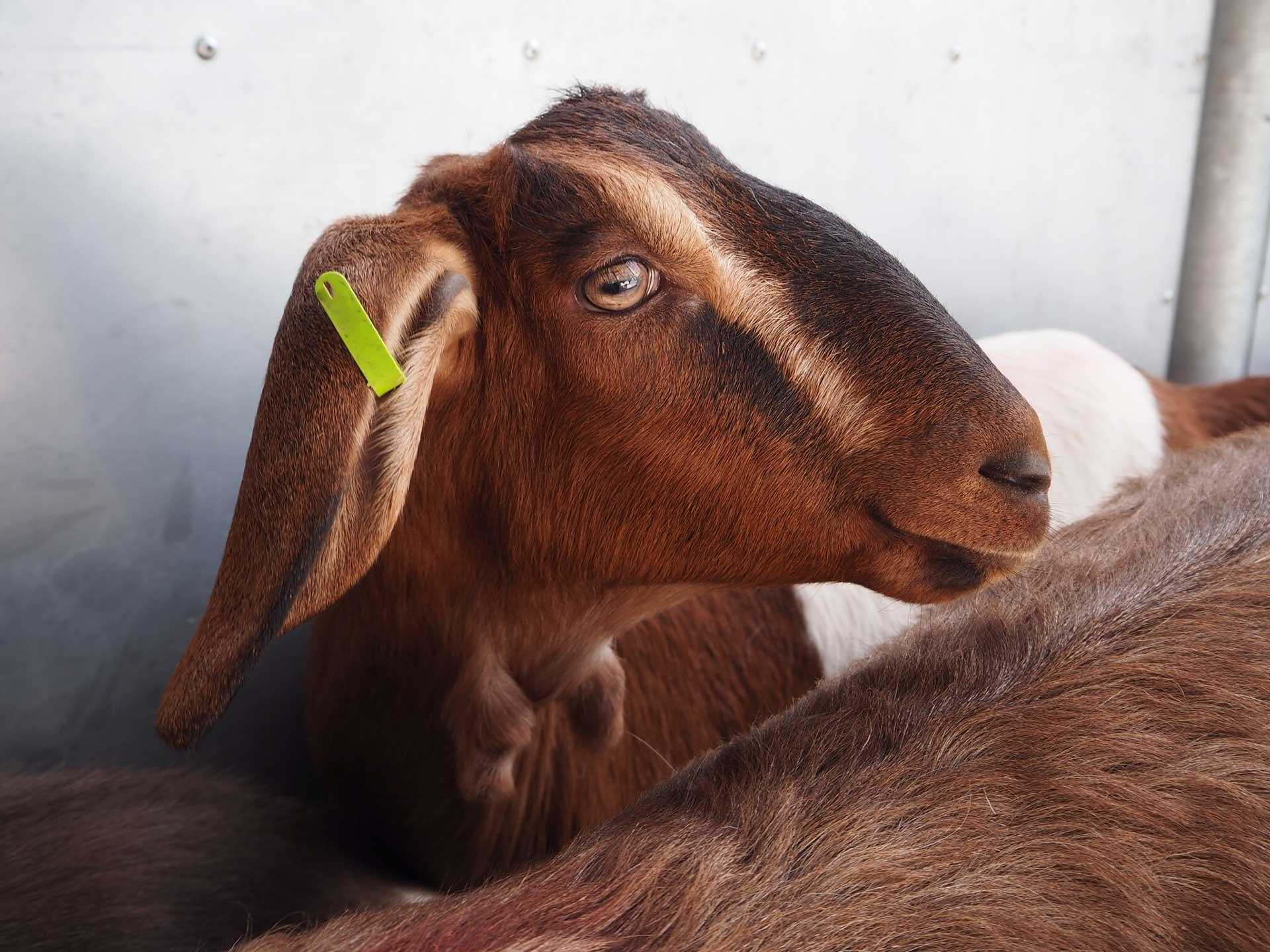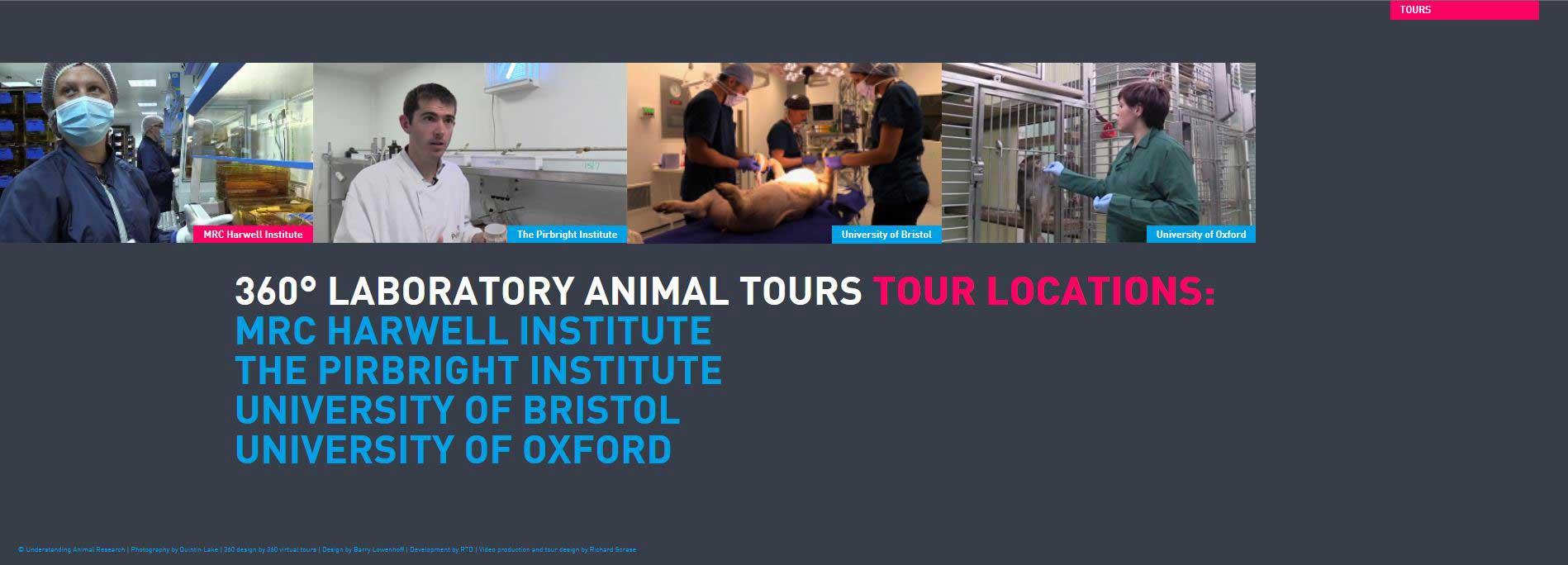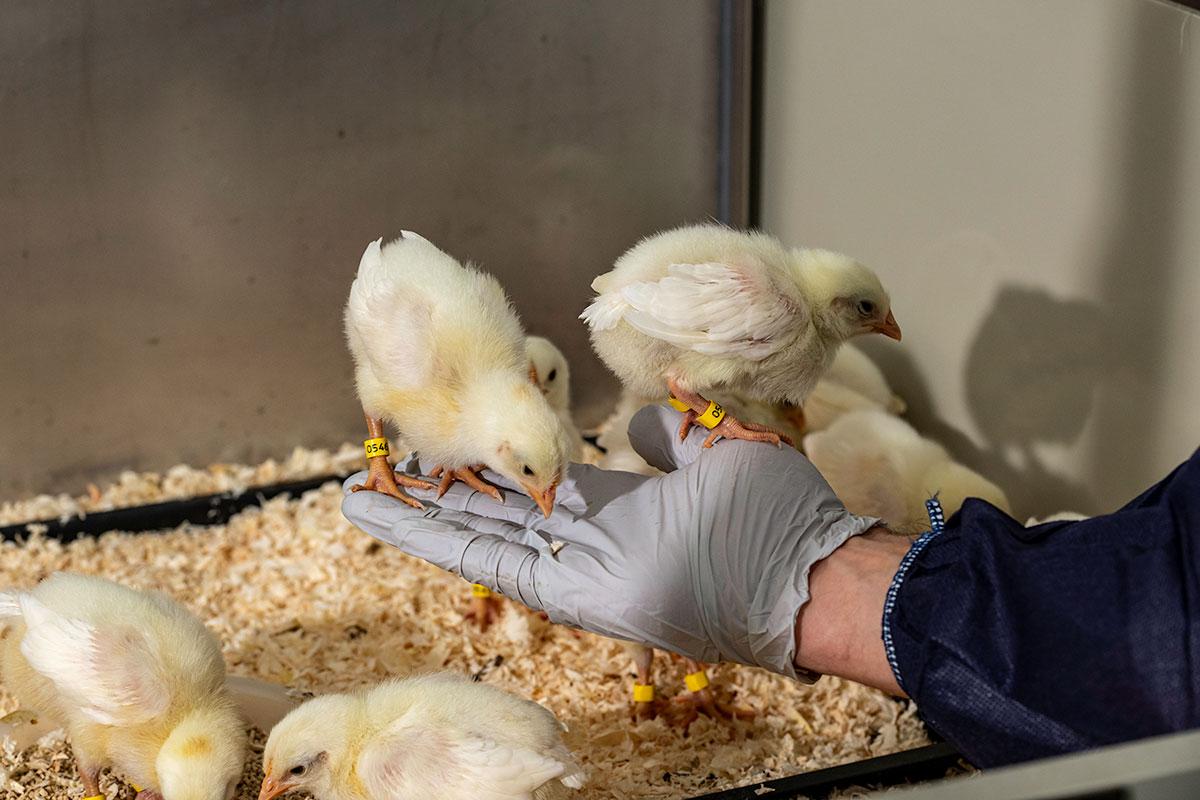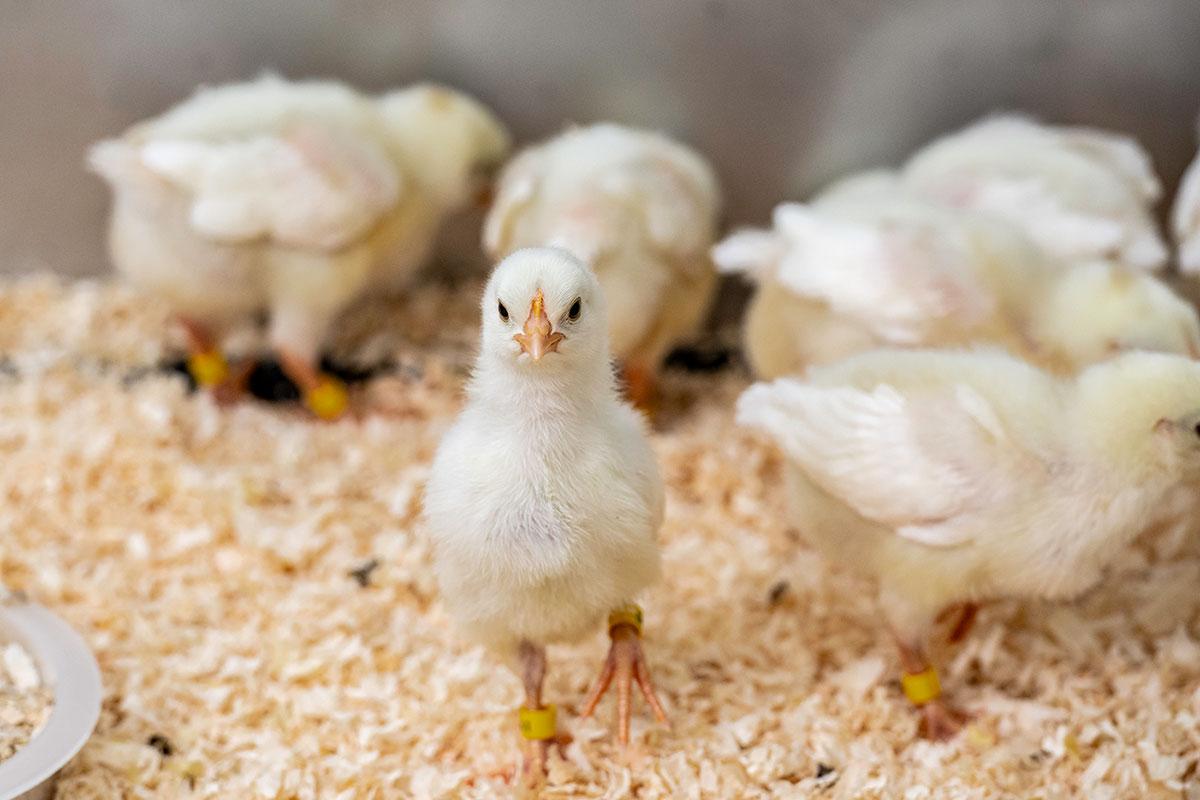Virtual tour
In 2017 Understanding Animal Research launched the 360 Laboratory Animal Tours project which offer the public a unique virtual tour of four animal research facilities that usually have restricted access to visitors.
The tour explores Pirbright’s research facilities, allowing users to move around and providing a 360 degree view. The tour also features videos of researchers, who explain why animals are so essential to their research, and animal technicians who are dedicated to ensuring high standards of welfare for the animals in their care.
Posters
The Pirbright Institute is committed to providing high standards of care and welfare for all animals held on site for scientific research.
To ensure this commitment is met, it is vital that any concern relating to animal care, treatment or welfare is reported in a timely manner.
Raising a concern within The Pirbright Institute's animal facilities
Within this pilot study, pigs were target trained with positive reinforcement with an aim to improving the welfare of the animals housed at The Pirbright Insttiute and thus the quality of the research conducted.
Target training pigs within an Isolation Unit (a pilot study)
The poultry team at The Pirbright Institute reviewed existing husbandry practices, and trialled a number of refinement approaches.
The objective is to provide the birds used in research with an environment which enables them to express their natural behaviours and habituates them towards human contact, including procedures, with the potential to reduce cumulative suffering. This is especially important for animals used in research as stress is known to alter physiological and immunological responses, which could affect the results from infectious disease research.
This poster summarises refinement approaches, including enrichment products used in the commercial poultry industry and pet trade.
Various items of enrichment have been introduced through observing natural behaviour and interest. This poster presents refinement approaches which have been subjectively assessed as being of benefit to the birds. Future work will consist of implementing a more objective assessment of benefit of these refinement approaches, such as quantitative behavioural assessment.
Refinement: Promoting welfare in an experimental poultry unit
During the course of infectious disease research at The Pirbirght Institute, multiple parameters are used by Animal Technicians to assess the welfare of birds during disease progression.
These have historically been subjective in nature, however a consistent, reproducible, quantitative measure of disease progression was desired.
This study illustrates the initial results obtained from taking daily measurements of bird mass as a standard approach to assessing bird welfare. This includes the initial optimisation of the process, preliminary results from “normal” birds, and some immediate examples of how a review of daily weight gain has improved the early detection of avian health.
Daily calibration, and separating bird weights according to sex allows background variation to be reduced. Daily weight gain assessment has also allowed early detection of ill health after infection with avian influenza to be detected, as well as an ability to differentiate procedure related from non-procedure related harms.
Using daily weights as an indicator of poultry health and welfare in a research environment
Individual identification of birds used in scientific research at The Pirbright Institute has historically used invasive wing tags. This poster presents the first results of an ongoing study which seeks to replace the wing banding with non-invasive leg bands in a variety of ages of an inbred chicken breed.



